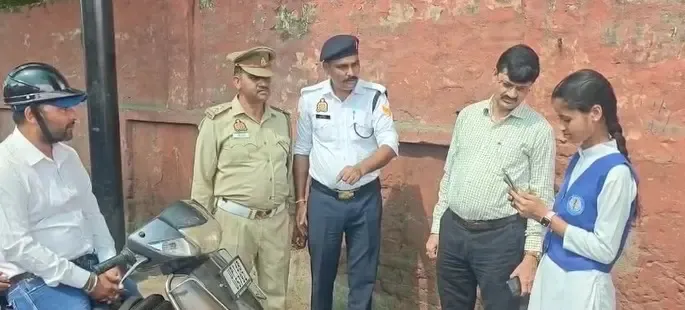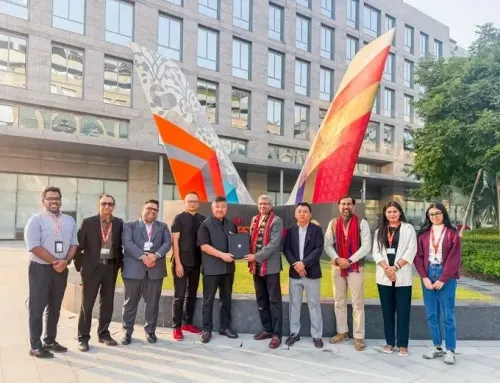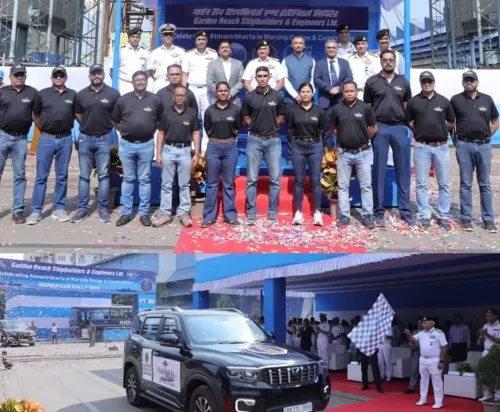How Are Ghaziabad School Girls Taking Charge of Traffic?

Synopsis
Key Takeaways
- School girls in Ghaziabad took charge of traffic management.
- The initiative promotes women's empowerment and safety.
- Girls issued challans to traffic violators and educated the public.
- Local residents reacted positively to the initiative.
- Mission Shakti aims at women-led development.
Ghaziabad, Oct 3 (NationPress) On Friday, school girls assumed control of traffic management in Ghaziabad, aiming to increase awareness of traffic regulations among the local populace. This initiative, conducted under the Mission Shakti Abhiyan, featured young girls directing traffic at the bustling Hapur Chungi intersection and issuing challans to motorists who violated traffic norms.
Students from various schools in the city eagerly took part in this campaign, collaborating with traffic police to maintain a smooth flow of vehicles. They ensured adherence to traffic regulations, helped avert potential disruptions, and issued immediate challans to offenders while enlightening the public on road safety.
The primary objective of this campaign was to bolster women's safety and empowerment. As a segment of the broader Mission Shakti initiative, this traffic operation represented a significant stride towards empowering young girls and cultivating a culture of safety and adherence to laws. The students emphasized that initiatives like these not only empower women but also enhance law and order within the community.
Local residents praised the effort, viewing it as a positive change. Many expressed optimism that ongoing awareness initiatives would lead to improved traffic conditions in Ghaziabad.
IANS spoke with several participating students about their experiences:
Tanushree Yadav remarked, 'We had the chance to act as traffic police for the day, and we are thankful for this opportunity. We also educated people that both riders on a motorcycle must wear helmets.'
Shreya added, 'This experience taught me the importance of helmets. We issued traffic tickets to violators; some complied with our requests, while others disregarded them.'
Anshi mentioned, 'We ticketed those without helmets and stopped drivers not wearing seat belts. We also informed individuals about the importance of obeying red and green traffic signals.'
The Mission Shakti program is a flagship government initiative designed to strengthen women's safety, security, and empowerment. It aims to fulfill the government’s commitment to women-led development by tackling challenges throughout a woman's life cycle and ensuring women are equal partners in nation-building through collaboration and public involvement.
This scheme encompasses two sub-programs: 'Sambal' and 'Samarthya'. The Sambal sub-scheme focuses on women's safety and security by combining existing initiatives such as the One Stop Centre (OSC), Women Helpline (WHL), and Beti Bachao Beti Padhao (BBBP), with improvements and the introduction of a new element, Nari Adalat—a women's collective.









